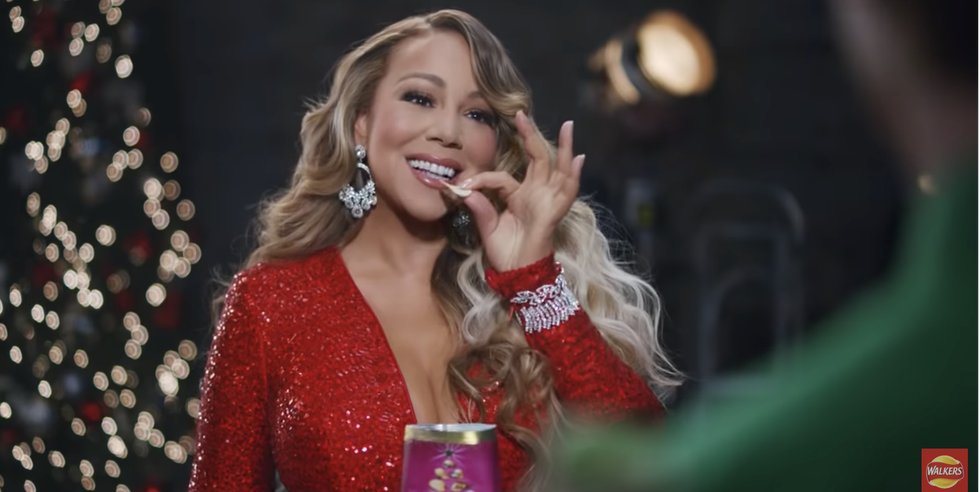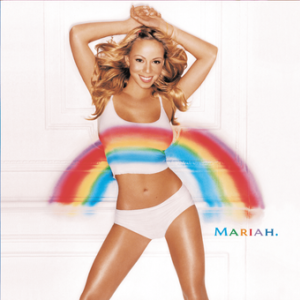
Mariah Carey’s iconic holiday anthem, “All I Want for Christmas Is You,” has become a staple of festive celebrations worldwide, embodying the spirit of the season with its catchy melody and heartfelt lyrics. Since its release in 1994, the song has consistently topped charts and captured the hearts of listeners, cementing its place in music history.
However, amidst the joyful jingles and cheerful festivities, a legal battle looms over the beloved track. Country singer Andy Stone, performing under the stage name Vince Vance, has filed a copyright infringement lawsuit against Mariah Carey and associated parties in Los Angeles federal court. Stone alleges that Carey’s Christmas hit unlawfully borrows from his own 1989 song of the same name, sparking a contentious legal dispute that threatens to overshadow the holiday cheer.
Stone’s complaint, lodged on November 1, 2023, contends that Carey’s song not only uses the same title and song themes, but it lifts approximately 50% of its lyrics directly from his original composition. Represented by attorney Douglas M. Schmidt, Stone asserts that previous attempts to settle the matter out of court have failed, leading to the escalation of legal proceedings. This latest lawsuit, which includes Stone’s co-songwriter Troy Powers as a co-plaintiff, resurrects claims dropped from a previous suit filed in June 2022.
At the heart of the dispute lies the assertion that Carey’s rendition of “All I Want for Christmas Is You” infringes upon Stone and Powers’ intellectual property rights. The plaintiffs argue that their song, recorded by Vince Vance and the Valiants in 1989, predates Carey’s version and shares striking similarities in both theme and lyrical content.
Moreover, the lawsuit challenges the authenticity of Carey’s creative process, alleging that she misrepresented the song’s genesis. As Gerard P. Fox, Stone’s attorney, enters the fray, drawing parallels to past legal battles involving high-profile artists, the stage is set for a contentious showdown between musicians.
“All I Want for Christmas is You” – The Target

“All I Want for Christmas Is You” stands as a testament to Mariah Carey’s enduring musical legacy and has rightfully earned its place as one of the biggest Christmas songs of all time. Written by Carey and Walter Afanasieff, the song’s origins trace back to Carey’s creative vision and Afanasieff’s musical expertise, resulting in a holiday classic cherished by millions worldwide. However, controversy surrounds the song’s creation, as Carey often references composing it on a Casio piano without acknowledging her co-writer, which forms part of the plaintiff’s argument in the ongoing legal dispute.
This isn’t the first claim of copyright infringement towards the song. The song has earned millions in royalties, and the popularity has increased every year. Reaching new milestones which are declared publicly, the growing multi-platinum status of the song and the million dollar performances surrounding it, turn this classic into a cash cow anyone would like a piece of.
Despite the legal complexities, at a first glance both songs seem to have absolutely nothing in common, apart from the title. And when questioning the use of similar themes, well, it’s Christmas. There’s only so much new jargon you can introduce into a Christmas song without overlapping words such as “Santa”, “presents” and “Christmas tree”. But that’s just our opinion
Legal Disputes and Allegations
In the legal battle over alleged copyright infringement surrounding Mariah Carey’s “All I Want For Christmas Is You,” the plaintiffs, Andy Stone and Troy Powers, have levied several key arguments against Carey and the co-defendants, Universal Music Corp. and Sony Music Entertainment.
Stone, under his stage name Vince Vance, and Powers contend that Carey’s holiday anthem bears striking resemblances to their 1989 song of the same title, recorded by Vince Vance and the Valiants. They claim that significant portions of Carey’s composition, both lyrically and thematically, mirror their own work, suggesting that “All I Want For Christmas Is You” is a derivative of their original creation.
This isn’t the first time Stone has taken legal action against Carey, as he initiated a similar lawsuit last year, albeit dropping it later.
The crux of Stone’s argument lies in the perceived similarities between his song and Carey’s festive classic. Stone, alongside his co-songwriter Troy Powers, contends that their composition, recorded by Vince Vance and the Valiants in 1989, shares significant thematic and lyrical parallels with Carey’s chart-topper.
Moreover, Stone and Powers challenge the authenticity of Carey’s narrative surrounding the song’s inception, claiming that she has misrepresented the composition process by omitting the involvement of her co-writer, Walter Afanasieff. This assertion forms a critical component of the plaintiffs’ argument, alleging that Carey’s account of independently composing the song on a Casio piano misleads the public and adds to their claim of false narrative of the origins of the song.
In the attempt to demonstrate the unorthodoxy of Carey’s character, plaintiff’s argue she even attempted to trademark the name “Queen of Christmas” to only see this rejected.
Represented by attorney Gerard P. Fox, Stone aims to rectify what he perceives as an infringement of his intellectual property rights.

What Mariah’s Team Had to Say
In response to these allegations, Mariah Carey, along with Universal Music Corp. and Sony Music Entertainment, have mounted a robust defense. The document containing the defense is attached but we’ve cut through the legal jargon to summarise the lengthy document.
They start by stating the surprise that this was filed 30 years after the song’s release, at a coincidental moment of peak of popularity. They summarise their rejection of copyright infringement stating that multiple Christmas songs refer “to snow, mistletoe, presents under Christmas trees, and wanting a loved one for Christmas, and relying on generalized and unprotectable themes such as the human condition, and the need for the company of another above all else at Christmastime.”
The defendants therefore contest the assertion of copyright infringement, maintaining that Carey’s composition is distinct and independent from Stone and Powers’ song. They argue that any purported similarities between the two works are incidental and insufficient to support claims of infringement.
Additionally, they refute the notion that Carey’s song constitutes a derivative work of their original composition. They contend that the alleged similarities are commonplace within the holiday music genre and do not amount to actionable infringement.
They add the song performed by the plaintiffs itself copies earlier works including Bobby Vinton’s 1964 song “My Heart Belongs Only to You”, without any registered permissions for doing so.
Furthermore, the defendants dispute the plaintiffs’ characterization of Carey’s origin story for the song, asserting that her account of its creation is accurate and does not misrepresent the contributions of her co-writer, Afanasieff, despite the recognised omission in multiple situations. They argue that Stone and Powers’ allegations regarding Carey’s narrative are unsubstantiated and irrelevant to the matter of copyright infringement.
They further admit that Carey did apply for the trademark of “Queen of Christmas” but deny that it was rejected.
As the legal proceedings unfold, the clash of legal arguments highlights the intricacies of copyright law within the music industry, underscoring the complexities of determining infringement and originality in the realm of creative works.
The Ripple Effect of Legal Precedents

The legal dispute surrounding Mariah Carey’s “All I Want For Christmas Is You” holds significant implications for copyright law and the music industry. If the court rules in favor of Andy Stone and Troy Powers, it could set a precedent in copyright infringements related to song titles and themes.
A verdict favoring Stone and Powers would signal a shift in how courts interpret and enforce copyright protections for creative works, emphasizing the importance of originality in song titles and overarching themes. This ruling would compel artists and songwriters to exercise excruciating caution, fostering a culture of heightened awareness and legal protection. This would make it almost impossible to release new music without some basis for copyright claims.
Moreover, the case’s negative outcome towards Carey would fill the courts for years to come. With song titles such as “Angel”, “Home”, “Crazy” and “Hello”, the musical industry would become one never-ending lawsuit. Mariah could even join the party, starting with Taylor Swift’s “Shake It Off” (2014).
Ultimately, regardless of the court’s ruling, the case underscores the importance of protecting intellectual property rights unto a certain limit. This is the only possibility way to foster an environment that encourages innovation and artistic expression in the music industry.
If you wish to read the entirety of Carey’s team’s defense, see the document below:

A Christmas Miracle: Learn the Code to Play Mariah Songs on Spotify Every 33 Seconds







